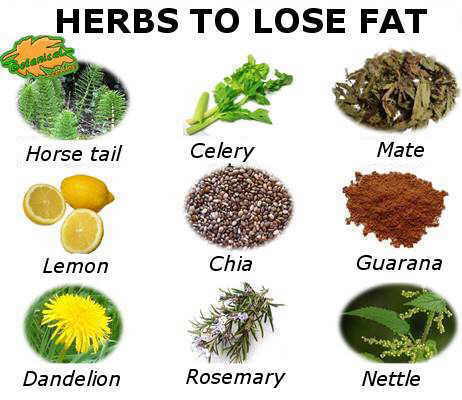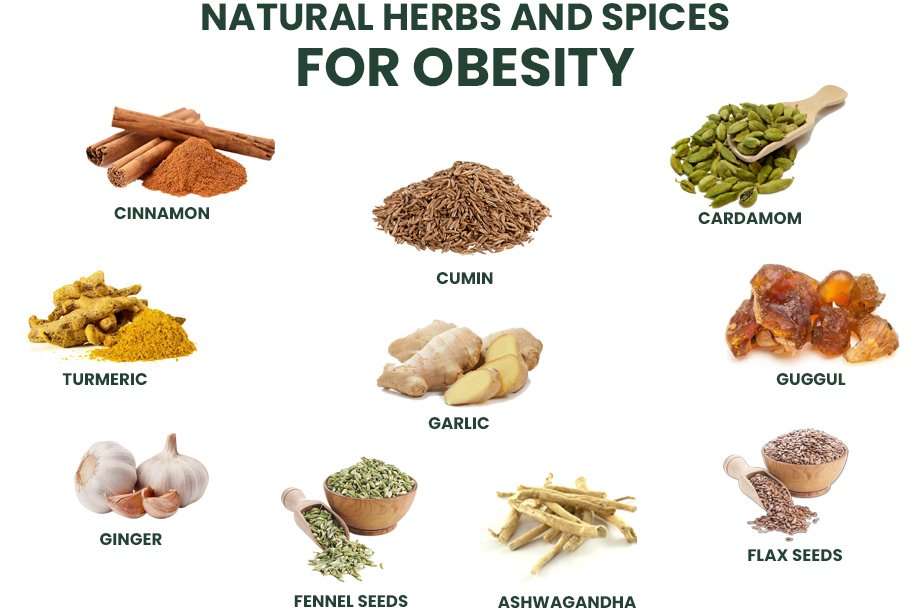Are you tired of struggling with excess weight and feeling the harmful effects of obesity? Look no further! In this article, you’ll discover a remarkable natural remedy that can help you shed those pounds and improve your overall health. Say goodbye to fad diets and exhausting workouts – this simple yet effective solution is here to assist you on your journey toward a healthier and happier life. Buckle up and get ready to embrace the incredible power of nature in combating obesity!

Causes of Obesity
Genetic Factors
Obesity can be influenced by genetic factors. Some individuals are genetically predisposed to gain weight more easily than others. Certain genes can affect metabolism, appetite regulation, and fat storage, making it more challenging for some individuals to maintain a healthy weight.
Poor Diet
A poor diet high in processed foods, sugary snacks, and unhealthy fats can contribute to obesity. Consuming excessive amounts of calories without proper nutrition can lead to weight gain. Fast food, sugary beverages, and convenience meals often lack essential nutrients and promote overeating.
Lack of Physical Activity
Sedentary lifestyles contribute to obesity. Spending prolonged periods sitting or engaging in minimal movement reduces calorie expenditure and muscle mass. Regular physical activity is crucial for weight management as it helps to burn calories, build lean muscle, and boost metabolism.
Medical Conditions
Certain medical conditions can contribute to weight gain. Hypothyroidism, polycystic ovary syndrome (PCOS), insulin resistance, and hormonal imbalances can affect metabolism and lead to obesity. It is important to consult with a healthcare professional if you suspect underlying medical conditions may be contributing to your weight.
Effects of Obesity on Health
Cardiovascular Diseases
Obesity increases the risk of developing cardiovascular diseases such as heart disease, high blood pressure, and stroke. The excess weight puts additional strain on the heart and blood vessels, leading to an increased risk of heart attacks and other cardiovascular complications.
Type 2 Diabetes
Obesity significantly increases the risk of developing type 2 diabetes. The accumulation of excess fat in the body can impair insulin function, leading to insulin resistance and elevated blood sugar levels. Uncontrolled diabetes can have severe health consequences, including damage to organs and an increased risk of other illnesses.
Joint Problems
Excess weight puts additional pressure on the joints, especially the knees and hips, leading to joint pain, stiffness, and increased risk of osteoarthritis. The cartilage between the joints can wear down faster due to the extra load, causing discomfort and mobility issues.
Sleep Apnea
Obesity is a common risk factor for sleep apnea, a sleep disorder characterized by interrupted breathing during sleep. The excess weight can obstruct the airways, leading to breathing difficulties and disrupted sleep patterns. Sleep apnea has been linked to various health problems, including high blood pressure, cardiovascular diseases, and daytime fatigue.
Mental Health Issues
Obesity can have a significant impact on mental health and well-being. Low self-esteem, body image dissatisfaction, depression, and anxiety are often associated with being overweight or obese. Furthermore, societal stigma and discrimination against individuals with obesity can further contribute to mental health challenges.

Benefits of Natural Remedies
Avoiding Harmful Chemicals
Natural remedies for obesity often involve using organic and plant-based ingredients instead of chemicals or pharmaceuticals. By prioritizing natural approaches, you can minimize exposure to potentially harmful substances and mitigate the risk of adverse side effects.
Promoting Overall Well-being
Natural remedies for obesity focus on promoting overall well-being, not just weight loss. These remedies often prioritize nutrient-rich foods, regular physical activity, and stress management techniques. By taking a holistic approach to health, you can improve your overall quality of life and enhance your body’s natural ability to maintain a healthy weight.
Sustainable and Long-term Results
Unlike crash diets or quick-fix solutions, natural remedies for obesity prioritize sustainable and long-term results. By making gradual lifestyle changes, incorporating healthy habits, and addressing underlying factors contributing to weight gain, you can achieve lasting weight management and overall health improvements.
Healthy Diet for Weight Loss
Whole Foods
A healthy diet for weight loss should primarily consist of whole foods, such as fruits, vegetables, lean proteins, whole grains, and legumes. These foods are rich in essential nutrients, fiber, and antioxidants while being lower in calories compared to processed and refined foods.
Portion Control
Practicing portion control is crucial for weight management. It involves being mindful of portion sizes and eating until you are satisfied, not overly full. Consuming smaller portion sizes helps to regulate calorie intake and prevent overeating.
Reducing Sugar Intake
Excessive sugar consumption can contribute to weight gain and various health issues. Opting for low-sugar alternatives, reducing added sugars in beverages, and avoiding sugary snacks can help control calorie intake and stabilize blood sugar levels.
Increasing Protein Consumption
Protein plays a vital role in weight management as it helps to curb appetite, support muscle growth, and boost metabolism. Including lean sources of protein such as poultry, fish, legumes, and tofu in your meals can help you feel fuller and more satisfied.
Incorporating Healthy Fats
Contrary to popular belief, healthy fats are essential for weight loss. Focusing on sources of monounsaturated and polyunsaturated fats, such as avocados, nuts, seeds, and olive oil, can promote satiety and provide essential fatty acids to support overall health.

Effective Exercises to Combat Obesity
Cardiovascular Activities
Cardiovascular exercises, also known as aerobic exercises, are effective in burning calories and improving cardiovascular health. Activities such as brisk walking, jogging, swimming, cycling, and dancing can help to increase heart rate and facilitate weight loss.
Strength Training
Strength training is crucial for building muscle mass, which in turn increases metabolism and calorie burn. Incorporating exercises that target major muscle groups, such as weightlifting, resistance band workouts, or bodyweight exercises, can contribute to weight loss and overall body composition improvements.
Interval Training
Interval training involves alternating between periods of high-intensity exercise and recovery. This type of workout can boost metabolism, burn more calories, and improve cardiovascular fitness. Examples of interval training include circuit training, high-intensity interval training (HIIT), and Tabata workouts.
Low-Impact Workouts
For individuals with joint issues or mobility limitations, low-impact workouts can be a suitable option. Low-impact exercises, such as yoga, pilates, swimming, and cycling, provide cardiovascular benefits and help improve strength and flexibility without placing excessive stress on the joints.
Herbal Remedies for Obesity
Green Tea
Green tea is known for its potential weight loss benefits. It contains catechins, antioxidants that may boost metabolism and promote fat oxidation. Additionally, green tea can help to increase satiety and support overall health due to its high content of polyphenols.
Ginger
Ginger has been used in traditional medicine for its digestive properties. It may aid weight loss by increasing thermogenesis, reducing inflammation, and improving digestion. Drinking ginger tea or incorporating ginger into meals can be a natural way to support weight management.
Garcinia Cambogia
Garcinia Cambogia is a tropical fruit extract that has gained popularity for its potential weight loss properties. It contains hydroxy citric acid (HCA), which may help to suppress appetite and inhibit fat storage. However, more research is needed to fully understand its effectiveness and safety.
Cayenne Pepper
Cayenne pepper contains capsaicin, a compound that may boost metabolism and reduce appetite. Including moderate amounts of cayenne pepper in meals or using it as a seasoning can be a natural way to support weight loss efforts.
Cinnamon
Cinnamon has been shown to help regulate blood sugar levels, which can be beneficial for weight management. It may also improve insulin sensitivity and reduce cravings for sweet foods. Adding cinnamon to dishes or beverages can enhance flavor while potentially promoting weight loss.

Natural Supplements for Weight Loss
Apple Cider Vinegar
Apple cider vinegar has been touted for its potential weight loss benefits. It may help to control blood sugar levels, reduce appetite, and increase feelings of fullness. Consuming diluted apple cider vinegar before meals or incorporating it into dressings and sauces can be a way to incorporate this natural supplement into your routine.
Probiotics
Probiotics are beneficial bacteria that support a healthy gut microbiome. Some research suggests that certain strains of probiotics may aid in weight management by promoting digestive health and reducing inflammation. Consuming probiotic-rich foods or taking probiotic supplements can contribute to overall well-being and potentially support weight loss efforts.
Fish Oil
Fish oil supplements contain omega-3 fatty acids, which have been associated with various health benefits, including weight management. Omega-3s may reduce inflammation, improve insulin sensitivity, and support fat oxidation. Adding fish oil supplements or increasing the intake of fatty fish can be beneficial for overall health and potentially aid in weight loss.
Fiber Supplements
Fiber supplements, such as psyllium husk or glucomannan, can help increase feelings of fullness and promote healthy digestion. By expanding in the stomach, fiber supplements can reduce appetite and support weight management. It is important to consume these supplements with sufficient water to prevent any discomfort or digestive issues.
The Importance of Hydration
Benefits of Drinking Water
Staying hydrated is essential for overall health and weight management. Drinking water helps to flush out toxins, supports digestion, and aids in nutrient absorption. Additionally, it can help to reduce calorie intake when consumed before meals, as it creates a feeling of fullness.
Hydrating Foods
Hydration can also be obtained through consuming foods with high water content. Fruits and vegetables such as watermelon, cucumbers, oranges, and strawberries are excellent sources of both water and essential nutrients. Including these hydrating foods in your diet can contribute to overall hydration and support weight management.
Infused Water Recipes
Infused water can be a refreshing and flavorful way to increase water intake. Adding slices of fruits, such as lemon, lime, or berries, along with herbs like mint or basil, can enhance the taste of water without adding additional calories or artificial sweeteners. Experiment with different combinations to find your favorite infused water recipes.

Stress Management and Weight Loss
Effects of Stress on Obesity
Chronic stress can contribute to weight gain and hinder weight loss efforts. Stress triggers the release of cortisol, a hormone that can increase appetite, promote fat storage, and affect food choices. Managing stress is essential for maintaining a healthy weight and overall well-being.
Meditation and Mindfulness Techniques
Practicing meditation and mindfulness techniques can help reduce stress levels and improve emotional well-being. These practices involve focusing on the present moment, calming the mind, and cultivating self-awareness. Regular meditation or mindfulness sessions can support weight management by promoting healthier coping mechanisms and reducing emotional eating.
Regular Exercise as a Stress Reliever
Engaging in regular physical activity is an effective way to manage stress and support weight loss. Exercise releases endorphins, which are natural mood boosters, and reduces stress hormones. Find an exercise routine that you enjoy, such as yoga, dancing, or hiking, to incorporate stress-relieving activities into your daily life.
Healthy Coping Mechanisms
Developing healthy coping mechanisms for stress management is essential for sustainable weight loss. Instead of turning to food for comfort, explore alternative activities that help you relax and unwind. This can include hobbies, spending time with loved ones, practicing self-care, or seeking support from a therapist or counselor.
Lifestyle Changes for Sustainable Weight Loss
Getting Enough Sleep
Adequate sleep is crucial for weight management and overall health. Lack of sleep can disrupt hormone regulation, leading to increased appetite, cravings, and reduced metabolism. Prioritize getting 7-9 hours of quality sleep each night to support weight loss efforts.
Maintaining a Regular Eating Schedule
Establishing a regular eating schedule can help regulate hunger cues and prevent overeating. Aim to eat meals and snacks at consistent times each day to maintain a stable blood sugar level and avoid extreme hunger, which can lead to unhealthy food choices.
Avoiding Emotional Eating
Emotional eating is a common response to stress, boredom, or negative emotions. By recognizing emotional triggers and finding alternative ways to deal with emotions, you can avoid turning to food for comfort. Engage in activities such as journaling, deep breathing exercises, or talking to a supportive friend when emotional eating urges arise.
Keeping a Food Journal
Keeping a food journal can help increase awareness of eating habits and identify areas for improvement. By tracking meals, snacks, and portion sizes, you can gain insights into your eating patterns and make adjustments as needed. This self-monitoring can also help to hold yourself accountable and make mindful food choices.
Supportive Social Network
Having a supportive social network can greatly impact your weight loss journey. Surround yourself with friends, family, or individuals who share similar health goals. Engage in activities together, share healthy recipes, and provide encouragement and motivation. Having a support system can make the weight loss process more enjoyable and sustainable.
By understanding the causes of obesity, recognizing the effects on health, and embracing natural remedies, healthy diet modifications, regular exercise routines, and stress management techniques, you can embark on a sustainable weight loss journey. Remember, it is essential to consult with a healthcare professional before making any significant changes to your lifestyle or incorporating herbal remedies or natural supplements. With patience, dedication, and the right support, you can achieve your weight loss goals and improve your overall well-being.
Related Terms About Natural Remedy For Obesity
How Can We Reduce Obesity Naturally,
How To Cure Obesity Naturally,
Natural Home Remedies For Obesity,
Natural Remedies For Obesity,
Natural Remedies To Reduce Big Stomach,
Natural Remedy For Obesity,
Natural Remedy To Remove Obesity,
Natural Treatment Of Obese